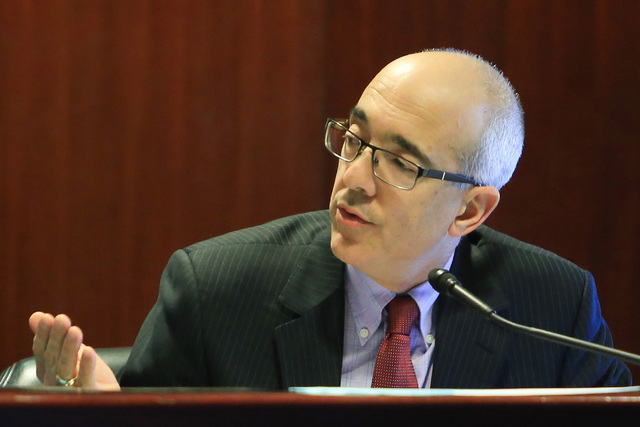Tuition-free college debate gathers steam en route to Nevada


PHILADELPHIA — A movement to provide tuition-free higher education was already gathering steam well before it became a centerpiece on the Democratic campaign trail.
Tennessee enacted the Promise Program in 2014, providing two years of tuition-free attendance at a community or technical college to residents. Oregon and Minnesota followed suit with similar programs.
It’s now reached Nevada, in the form of legislation proposed by state Sen. Mo Denis, D-Las Vegas, that’s patterned after Tennessee’s program.
The viability of these programs and future of college affordability led to a heated discussion Thursday between panelists at a seminar hosted by the Education Writers Association.
“What we’re seeing now, in all these iterations of free-college models, are efforts to take a completely different approach,” said Dr. Sara Goldrick-Rab, professor of Higher Education Policy, Organizational and Leadership Studies at Temple University. “Instead of means-tested higher education, we’re going to a universal model that doesn’t use a form to sort out who needs what — to do a better job of removing financial barriers.”
Over time, she said the model for financial aid, which was supposed to ensure enough money would reach those with the highest need, has failed.
“I think communities across the country are starting to say, ‘This isn’t working for us,’” Goldrick-Rab said. “And one of the reasons this movement has taken off, is that it’s not just low-income students saying it. It’s also a growing number of moderate and middle-income families.”
Panelist Neal McCluskey, director of the Center for Educational Freedom at the Cato Institute, didn’t see it in such cut-and-dry terms.
He agrees with Goldrick-Rab that the price of college is too high, but said he believes free college will lead to a “massive over-consumption” of higher education.
“At the very least, we don’t have targeting of people to find the fastest way to get the skills they need,” McCluskey said. “In part, that’s because we don’t really measure what people are learning in higher education.”
He also cited high non-completion rates, and believes it’s tied to poor preparation at the K-12 level.
“Before we start saying let’s get more people into college, we maybe need to make sure they can do college,” McCluskey said.
Contact Natalie Bruzda at nbruzda@reviewjournal.com or 702-477-3897. Follow @NatalieBruzda on Twitter.
RELATED
Lawmaker wants to make community college free for Nevada students


















